 I don't like some of my Facebook comments to get buried and lost, especially if I believe I've given a half-decent reponse. My friend asked the following: The Question: how does one bring up a child/nephew/niece/student in 2017 with the right mental framework and education so that they are resilient to trauma of finding out that later in life that just like Santa, God is also a fictitious idea that was injected into their innocent brains as a way to control their behaviour? MY RESPONSE I’ve lived in a homogenous culture where practically everyone believes in God, a specific God, as well as in Britain where there’s a good mix of believers and non-believers. MY CONCLUSION: The truth is, there definitely is a God for some people and there definitely is no God for others. Whether this is true for you or not seems to be based on a mixture of upbringing and life experience. For me, I definitely believe in a God but don’t think She comes with a certain religion so I’m happy to enter any place of worship and enjoy it for what it is, people trying to connect with their God. I actually like the base concept of religion but most people take it too far. My parents never used religion to control me, nor told me to accept their religion but they did introduce me to it. I decided we humans are just WAY too basic and generally too primitive to be the highest order of things so there must be a supreme organiser of things. I sometimes call my God, Mother Nature and I’ve at times reached a point where I just don’t feel in balance with life and calling upon my God has seen me through. There are also times when I have literally felt the presence of God, notably when I came to the end of a natural labour and saw the result. I had spent 9 months telling myself “I was born to do this, I can do it without interventions, I can do it without medications, I can do it at home!” When I came to the end of those 11 hours of labour I definitely felt something supreme, I can’t even explain it to you. Anyway, I’d never force my children to believe anything just as my parents didn’t force me but I’ll introduce them to God, spirituality, calling on their inner selves, all the values that exist on this earth and let them decide. They won’t have any trouble on this topic. Everyone is a spiritual being and it’s that’s spirituality that is God, the supreme organiser of all things. Many numb it with drugs, alcohol, fanaticism of a topic be it movies or academics but everyone has a need to feel that something is bigger than them. Altruism itself is driven by a need to connect with the supreme organiser of all things, to feel the good that exists in the universe, for me, that’s all God.
0 Comments
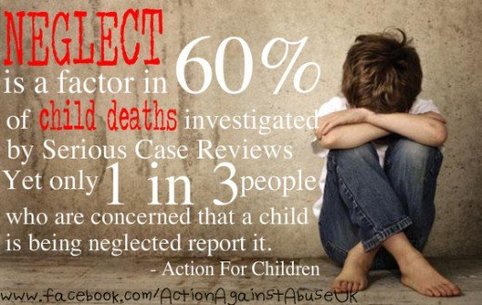 I grew up in a country where everything is everyone’s business! All my adult life I’ve lived in a country where people generally mind their own business sometimes to the extreme. Now, I’m writing about this experience because it hasn’t left me since it occurred three days ago: The Good Husband and I were sat in a restaurant having a date night when I noticed a woman sitting behind me with her son in the pram. “That kid’s about the same age as Chester,” I said to Harry for no specific reason. He nodded. About 10 minutes later I hear the kid making sounds to get the mother’s attention, she didn’t even look at him. Her face was glued to the phone, she was furiously texting someone, maybe the baby daddy, perhaps he'd p*ssed her off. Now, her son was my son’s age which meant he could probably walk and he could most certainly sit in a high chair and colour in or flip through a book. The kid wasn’t free to move a limb at all: he was in a warm winter coat indoors, quite tightly strapped in his chair with a dummy stuck in his. Ignoring the fact that the dummy should have been ditched at 12 months because it delays speech development beyond that point I was more frustrated by the fact that he was completely unstimulated but this is England, I thought, it’s none of my business. 30 minutes passed, then 40 minutes, we were coming up to an hour when the kid had been completely ignored despite several attempts to get mum's attention. It was that time in the day when doting parents were serving dinner to their kids, bathing them, reading them a story and putting them to bed and this little boy was having none of that. In fact, he hadn’t received so much as a smile from his mother in the hour we'd been there. I couldn’t stop myself. My legs took on a life of their own before my head could take control of them; I turned to her and said, “You need to take care of your child!” “I am taking care of him,” she argued. “How old is he?" I asked. “One and a half,” she scowled. In a triumph of tact and diplomacy (because anyone who knows me knows I could have said much more) I looked her in the face and said, “He needs some kind of attention.” “There’s nothing wrong with him,” she said, “he’s just being naughty.” He wasn’t being naughty. I let that particular choice of wording slide as a language issue because English was obviously not her native tongue. I turned back and sat in my chair and the Asian American lady sitting next to my table goes, “Oh my Gad, we were just talking about that.” I should have said you and everyone else in eyeshot of her is probably talking about it but this is Britain, we make excuses for people so I simply said, “Maybe she never gets a night off" - as if that would be an acceptable excuse for neglect. The lady and her baby didn’t stay long after that. Having lifted her head from her phone for the first time in an hour she suddenly realized she had been the centre of attention for a while and left. I worried about what punishment she'd mete out to her son for being "naughty". That night as I tossed and turned The Good Husband woke up and asked what was wrong, “I’m still thinking about the little Chinese boy,” I answered. I’m glad I said something. This is Britain. We mind our own business but sometimes we shouldn’t especially when the people we’re speaking for cannot speak for themselves. I know there are different forms of parenting out there and I do agree that most parents know what's best for their child. Indeed, some of the things I do would probably have helicopter parents and tiger mums around the globe tearing their hair out and I might feel the same about their practices. Ultimately we'd both fall into categories that are trying their best for their child. We're actively engaged in being parents of some form. Nowadays people ignore bad things happening right next to them then they go home and write the now infamous "open letter" or Facebook post, a heartfelt note that will most likely never reach the intended audience - what's the point? I can live with most parenting styles but neglect is definitely not something I can sit next to and watch…it’s not an acceptable form of parenting. It’s too impersonal. It shows a lack of care. We Africans take care of our relatives when they're old as gratitude for them taking care of us in our youth. Oh, how I used to be naïve. 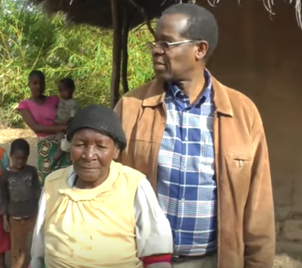 I used to tell my English friends that we don’t need old age homes in Malawi because we take care of our old people within the family. This is certainly not universal; hundreds of old people in Malawi are completely destitute with no one to support them except the odd well-wisher. With almost 90% of the population living on less than $3 a day, their own children are not in a position to care for them in any significant way. Indeed, many people aged over 80 have seen their own kids die young and the one or two kids they are left with can’t even feed themselves. Overpopulation is another issue here. Having too many children means that you can’t afford to educate them all so they’re bound to end up poor themselves. Our own cook is now 61. He’s still fit but he has 10 children the youngest is only 6. We used to talk about him having to many kids 15 years ago when he had 7 or 8 already but such is his myopia and poor judgment that he went on to have more. He says his two oldest children have left home but they are constantly coming to him to ask for money because they quite literally have nothing to eat. In 10 or 15 years time he’ll be too old to work and will probably retire to the village despite the fact that there’s nothing for him there. So, how could we solve this issue. What format could old age homes take in Malawi? Can the government even afford it? The government is currently paying for lots of things it can’t afford so let’s suppose that it could rejig things to prioritize old people. For instance, we could reduce the free goods being given to working age people to direct more towards the old. Most people would be too embarrassed to take their old to a home so we’d need a structure that would allow the old to submit themselves. Local clinics could be extended to include “wards” for people aged 80 or 85+. This would allow the very old to stay within the community they are familiar with. These places don’t have to be lush: a wooden bed, plastic mattresses, basic blankets and three square meals a day. Cleaners would ensure the accommodations were clean and those that were too old to bath themselves received the necessary support to wash themselves and keep infections at bay. In the video above you see aFelegesi the old woman with one arm sleeps on the floor without a mattress in a mud hut with a leaking roof. With no one to help her she has to cook for herself on an outdoor fire. What kind of life is that? The model I propose is simple and inexpensive. We Africans like to think of ourselves as having strong community links and compared to the West we do but it’s not enough to prevent this degrading old age poverty. 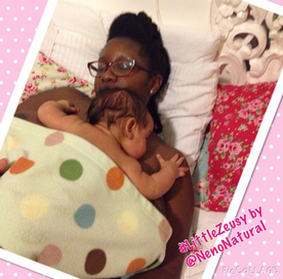 This blog post is dedicated to my NCT friend, Kat. Antenatal classes never explained why skin-to-skin contact between mother and baby was important. They said it needs to happen as soon as birth happens but didn’t go into the details of why - frankly, I’m sure most midwives couldn’t give you a proper explanation if you asked outside of the surface level: It helps with bonding, regulating body temperature, preventing postpartum depression etc. But why? Why does it have this impact? Importantly, whilst skin to skin immediately after birth is strongly recommended they never tell you to continue doing it when you get home. The Continuum Concept by Jean Liedloff has helped me to understand why it’s important and whilst I will try to explain it in my own words I know I won’t do the book justice. It’s a very academically rigorous book with many case studies. So in my own simple, layman words: Skin-to-skin Immediately After Birth Skin-to-skin post delivery is important for continuity of the human species. Basically, at the instant that a child is born mother nature wanted to ensure that its mother wholeheartedly wants to care for it. Consequently, at the point of birth and skin-to-skin contact a plethora of hormones are released that impress upon the mother the need to take care of this baby come hell or high water. In pre-historic times, the only reason a mother would not receive a baby post birth is because there was still birth. The result is that grieving hormones were released designed for the mother to mourn her child and eventually get over that loss. As sophisticated as we humans might think we are, evolutionary responses don’t develop so fast. If there is too much of a time delay between birth and mother-baby contact those grieving hormones kick into action and even if the baby is brought later it may be too late. The woman will be feeling all sorts of negative emotions and the mourning process cannot simply be stopped. Interestingly, not all animals have evolved the same way. With geese, the baby forms an attachment to the first thing it sees coming out and follows it everywhere. This happens because geese have many goslings and there is no way the mother goose could follow them all around. This is why you see a gaggle of goslings all following their mother. They were primed to do this at birth. If the gosling’s initial contact is with something else, e.g. a human, it will follow that human around everywhere too - interesting, right? 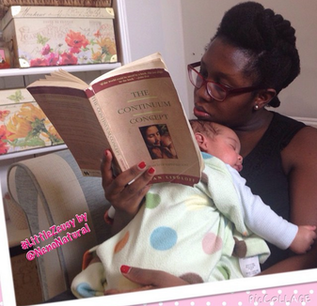 Skin-to-skin During Early Development (New Born Onwards) This is all about helping a baby transition from a comfortable, fully active environment (the womb) into a world composed mostly of “lifeless” air. Basically, in the womb, a baby is in a state of “bliss” - it is happy and content. The baby expects this happy existence where all its needs are met to continue. Whilst the initial skin-to-skin is crucial, follow-on skin-to-skin helps to build on the bond created and it has very calming effect on the baby because it reminds him of what he knows, the warmth and comfort of the womb in which he developed. The need for skin contact progresses towards a need for human contact in general. It’s a natural progression. When your baby is born it doesn’t think in words (as we do) but at first in terms of emotions (happy, sad, scared) and sensations (cold, hot, soft, hard). It’s taken out of the blissful, warm womb into a world of inactive “cold” air. Every single thing it hears and feels, every single treatment and experience feeds the baby with information about its new world; all the initial life experiences happen when your baby is in your familiar arms giving your baby confidence; it can smell mother and knows your voice well. So your baby’s not scared. In my case, I held Chester for just over 40 minutes as his body was rubbed clean and he took his first breaths and heard sounds outside of the womb. I lay in my husband, Harry’s, arms whilst Chester lay in mine still connected to me by the umbilical cord. When an infant is in arms intolerable experiences become much more tolerable to it and soon become expected. Because of this The Continuum Concept encourages taking baby about your daily life preferably in arms and not constantly treating them with "kitten mittens". Liedloff studies rural Amazonian communities to develop some of her theories and sees that an infant is carried around as its mother does all her daily tasks: walking through the forest (where many sounds are heard); the child encounters rain, wind, sunshine and all other weather changes. In its mother’s arms it experiences all that life has to offer and these life experiences are normalised thereby helping the baby transition into this life. 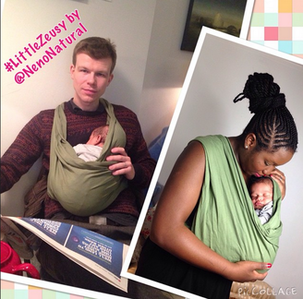 She compares this to a “Western” baby’s experience in a hospital where he may be taken into a baby ward/nursery (I don’t think this happens in England anymore) and instead of a mother tending to its needs immediately, the baby is left without motherly contact. He's also in lifeless clothing - his nappy perhaps changed according to a schedule, whether it was just soiled, clean or was soiled ages ago. Leaving baby in cots and prams where he’s stimulated only for short periods of time becomes the norm. Beyond the womb, a baby craves to have real life experiences, however, your baby will only meet life with a strong sense of self, with confidence, without fear if he is transitioned progressively from skin-to-skin to the in-arms phase to independence. Independence is a natural progression. You won’t spoil your child by holding them too much. They need that contact. Just as you should feed on demand you should also cuddle on demand. All too quickly the day will come when your little one crawls and needs your cuddles less and less. Ultimately, live your life as you always have and make your baby a part of it. There is no need to follow an overly rigid schedule. Going out? Take him. Going downstairs to make a coffee or bake a cake, take him. Let him watch, speak to him as you do it. Don’t leave him staring into space in his cot. This way your baby will transition naturally into independent living. Buy The Continuum Concept by Jean Liedloff on:
Whilst I was in America hosting The Money Spot program in August 2014 Apostle Debbie Viggs Founder of The International Council for Women contacted me re. being featured as on of 6 African women to be celebrated. Of course I agreed. I was both honoured and humbled.
 By Heather & Harry Katsonga-Woodward Earlier this year I told my YouTube subscribers that I sometimes call Harry, my husband, “The Good Husband” because a few months before we started dating I had created a listed entitled “The Good Husband” specifying all the traits I need in a life partner. A few months after this admission I revealed everything that I had on my list in this video that’s already been watched a few thousand times. A lot of people thought it was a good idea and proceeded to make their own lists. If you haven’t made a list already, Harry and I have come up with the below list that you can use to create your own strategy. We’re not telling you what you should look for at all as everyone has his or her own preferences but we thought you might like this as a guide. Get a piece of paper and use it to create your own list or download the printable version:
Day 1: Friday 14-Feb. First Impressions Of Mumbai, India 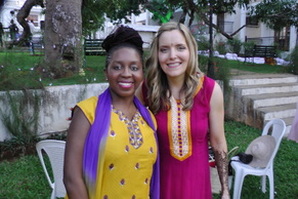 Our Wedding Outfits Our Wedding Outfits India was great fun! I thought this would mostly be a text-based blog post but I discovered the YouTube Capture app on day 1 of the holiday which made it easy for me to create and upload vids from my phone...so I made videos. Click for the YouTube playslist of the journey through Goa or just watch each video below. Day 1, Later That Night...As It Was Valentine's Day... My gifts plus what I said the first time Harry said those three words. Day 2: Saturday 15-Feb. First Day In Goa We randomly found a driver called Babu. He took us to some old churches, Spice Farm and a temple. The highlight was seeing Modern Tarzan climb up a tree then shoot down really fast. It was amazing but out of 15 people only Harry and I thought he deserved a tip! Day 3: Sunday 16 Feb - Black Girls Get A Lot Of Attention In India! Day 3: Sunday 16 Feb - The Beauty Of India - Come Open-Minded Day 4: Monday 17 Feb - Dark Skinned Indians Mostly Absent On TV Day 5: Tuesday 18 Feb - Is This Is Why They Stare At Black Girls? Day 6/7/8: Wed 20 Feb - Last India Vlog: Couple's Massage, A Bride For My Friend & The Sangeet (Wedding Party)  I read about coursera.org in an edition of Entrepreneur, the only magazine I read religiously and decided to try it out. You can take all the courses for free and for some you can pay to get a certificate if you want it. If you don't want the certificate then you can do the course entirely for free. At first, I wasn't going to pay for the certificate but then I decided that $49 is really not that much to have a record of having done the course so I paid up. Luckily I passed with flying colours which is always worth having on paper. I know a lot of people in Asia are taking advantage of these courses and getting real value. I found the course very useful but I didn't study hard for it. I just watched the videos and hoped I would remember what was relevant to me. I have a super good memory so this technique may not work for everyone. It took me about 6 years of serious graft in high school to master that technique. Anyhow...why don't you take a course too? Check out my certifcates on coursera: Want to Build a 6-Figure Beauty Business from the comfort of your sofa? Then my course is designed for YOU! "Beauty" includes a WIDE range of products from the not so obvious non-perishable foods and crafts to the more obvious hair, makeup, fashion, health & fitness. Learn more about The Money Spot Program 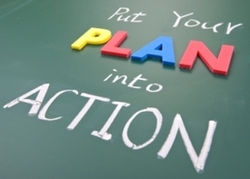 Technology can be extremely distracting. Since the summer I have wanted to focus on a certain project but I just kept never getting round to it. As much as I like to view myself as a highly efficient and competent individual it was high-time to admit that my efficiency was severely lacking and that I needed to refocus. I needed to sit down and think about what my priorities were and how I was going handle them alongside the important but not urgent daily minutiae. This morning, at c.3.30 a.m. I woke up feeling extremely lucid and I devised what I am now calling "BIG Project Time". You can't work on more than one BIG project at a time but you can have a couple of secondary important projects. BIG project time for me occurs four times a week from:
In total, over the course of the week I'll dedicate 24 hours to my big project. All other things such as blog writing, video editing, social networking and marketing cannot be done during BIG project time. I will have only one weekday during which I can work on one of my secondary projects during BIG project time. Whilst I can text my husband during big project time for important domestic issues everyone else is cut off during this time unless, of course, it is an emergency. I had to write a very specific list of what I cannot do during BIG project time. This is the list:
 Thanks to Lionness for challenging me to the below. She answered her own challenge here. I'm glad the questions she has asked me are a lot easier than the one she had - e.g. having to reveal her first love and breaking up with a dude who moved countries for her two months later - ouch! Here are the rules:
MY NOMINEES: any Neno Natural fan that wants to share! You can answer the questions as a comment or on your blog. 11 Things You Probably Don't Know About Me I'm going to share my more academic and professional side with all o' y'all.
Here Are The Questions For My Nominees
You can answer these as a comment or as a post on your blog. If you don't feel like it, you don't have to nominate anyone else to do this challenge - I just did it for fun. What is your full name?
2. What inspired you to start blogging?
3. Which country have you been to and liked the least? Why?
When I got to the airport they detained me for further questioning. When I asked why they said it was strange for a woman to be travelling on her own. The moment I got released, I jumped on to a bus to find a white woman who was also travelling on her own (she had flown in on the same flight as me) and had not been detained - say what?! 4. What would you eat if you got stuck in a tree for a week. Poison berries ( cause you to lose your eye sight for a week) or raw monkey ? Raw monkey - why not, eh? 5. What kind of shoes do your prefer wearing on a night out?
6. If you could own any item in the world what would it be?
7. How much do you know about me, (lioness davis) ? Write 3 facts.
8. What is your favorite reality show ? It used to be x-factor but after Simon left I started losing interest. Perhaps The Apprentice and Dragon's Den are first equal on my current list. 9. Who do you prefer: Tupac or Biggie? Biggie 10. If all the vegetables and fruits in the world were extinguished, which two would you keep?
11. What is your biggest fear? Failure! My Questions From Lionness:
|
By Heather
|
||||||
Heather Katsonga-Woodward, a massive personal finance fanatic.
** All views expressed are my own and not those of any employer, past or present. ** Please get professional advice before re-arranging your personal finances.

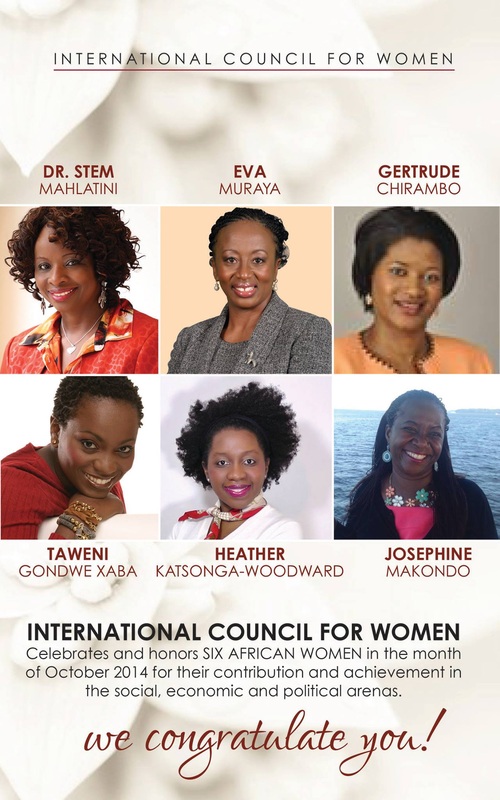


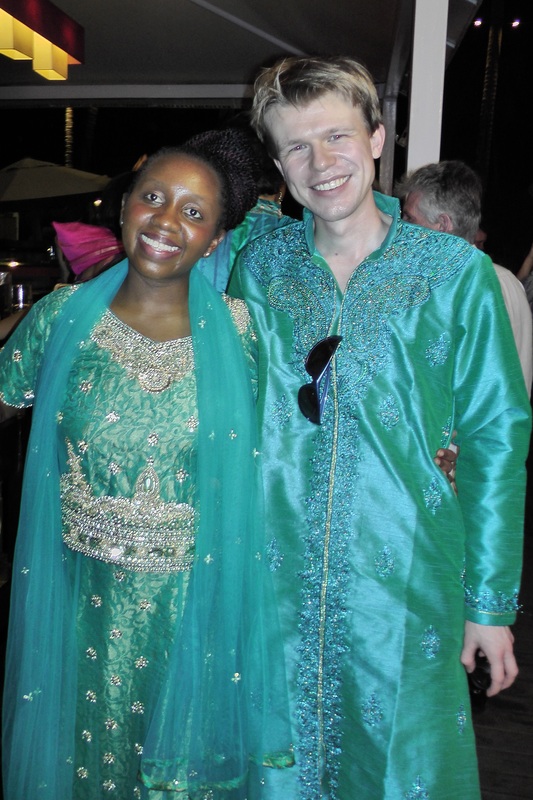




 RSS Feed
RSS Feed


